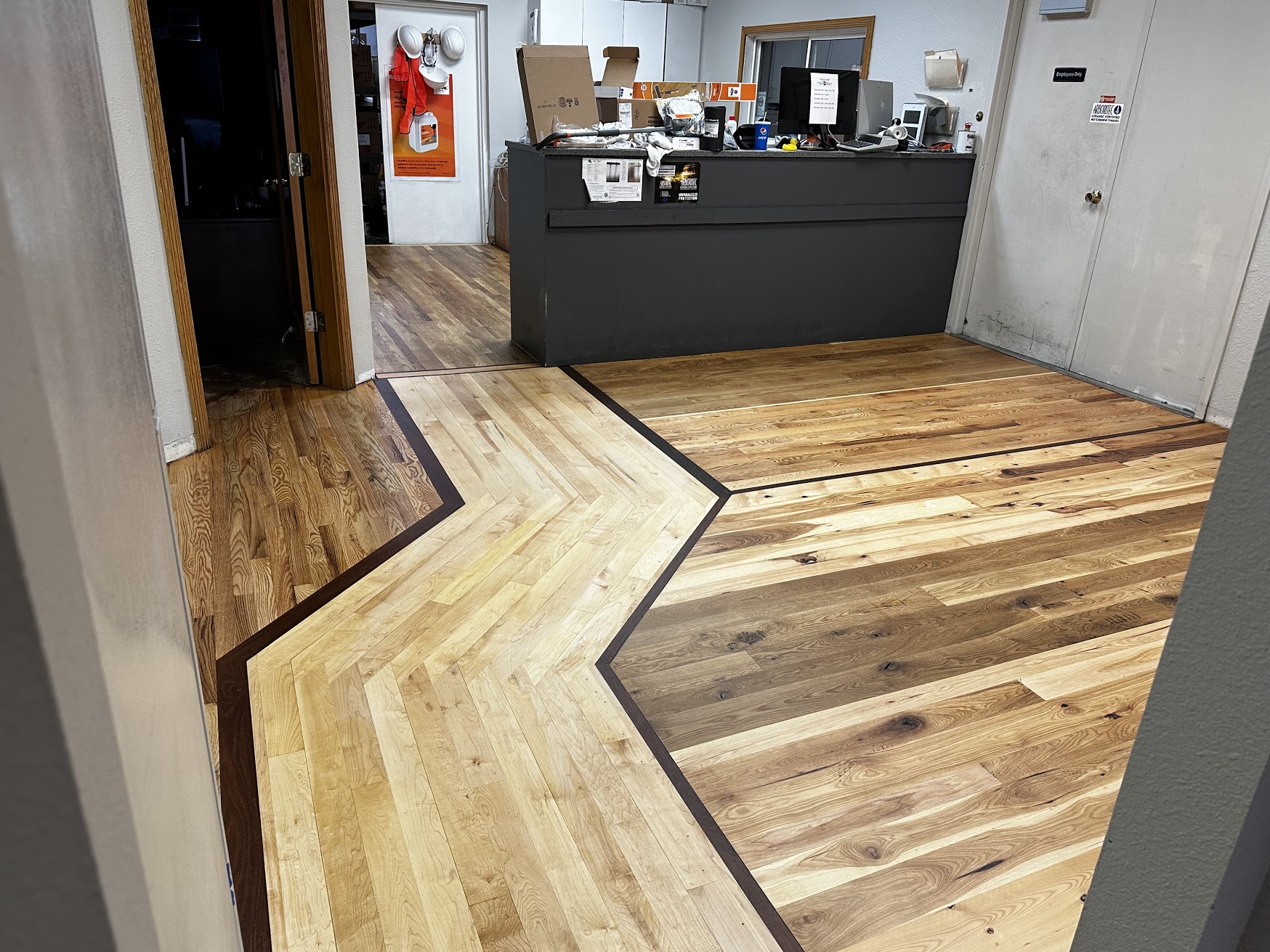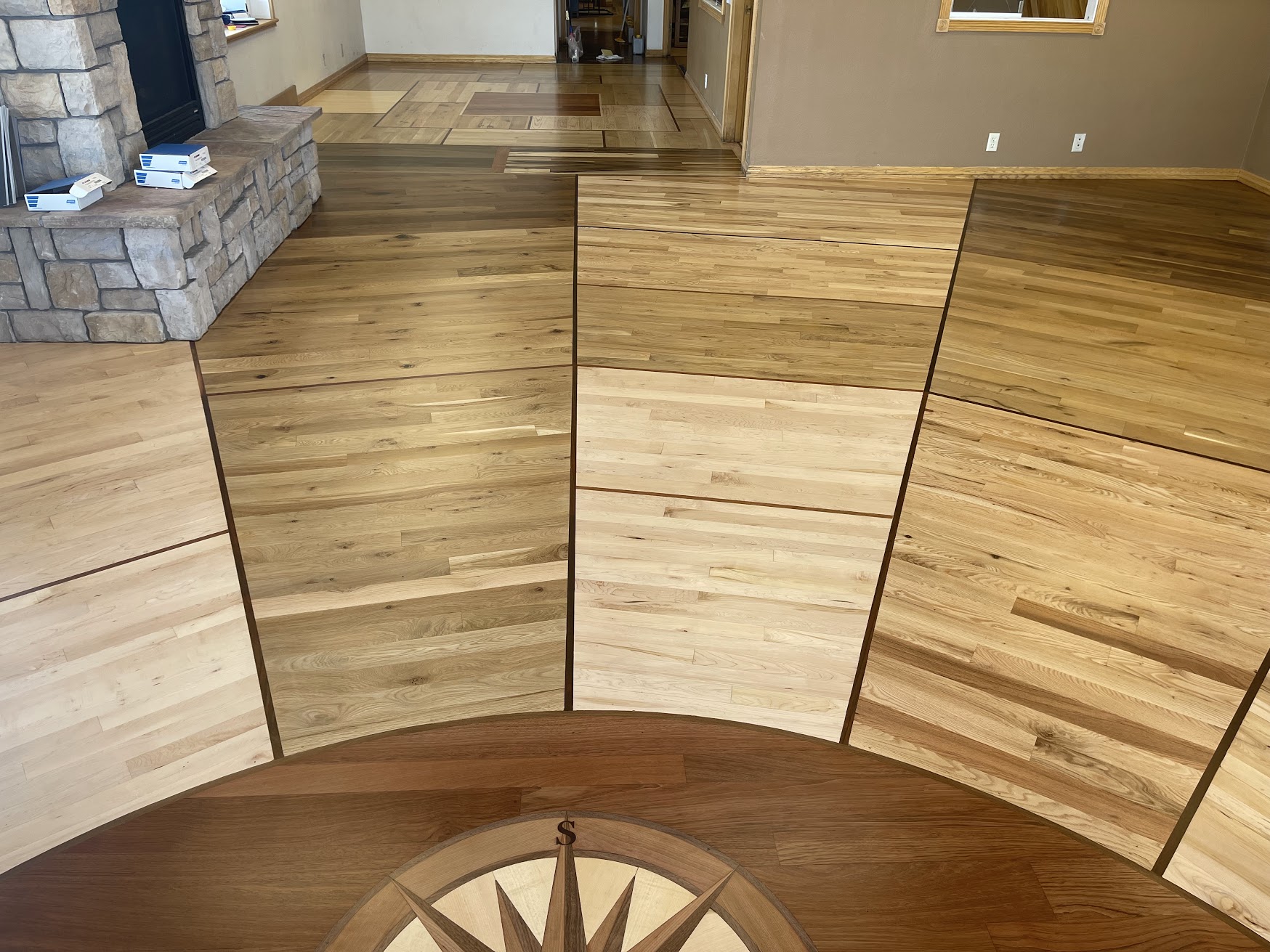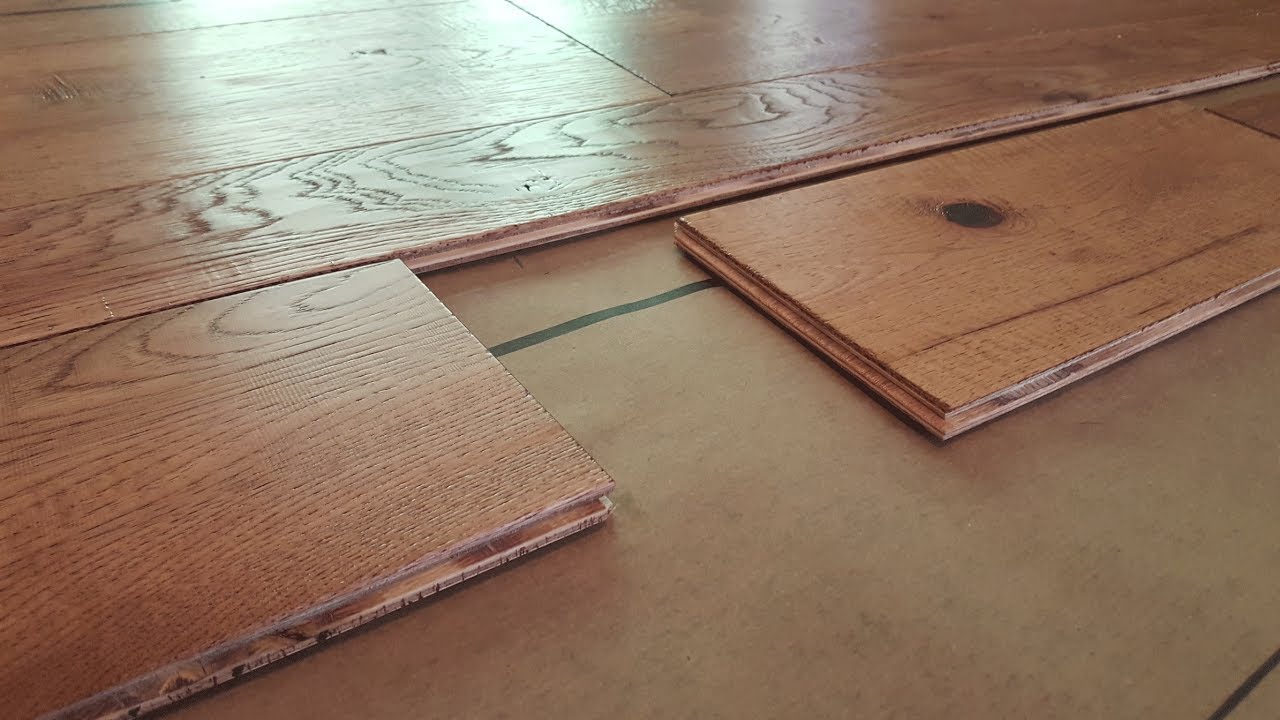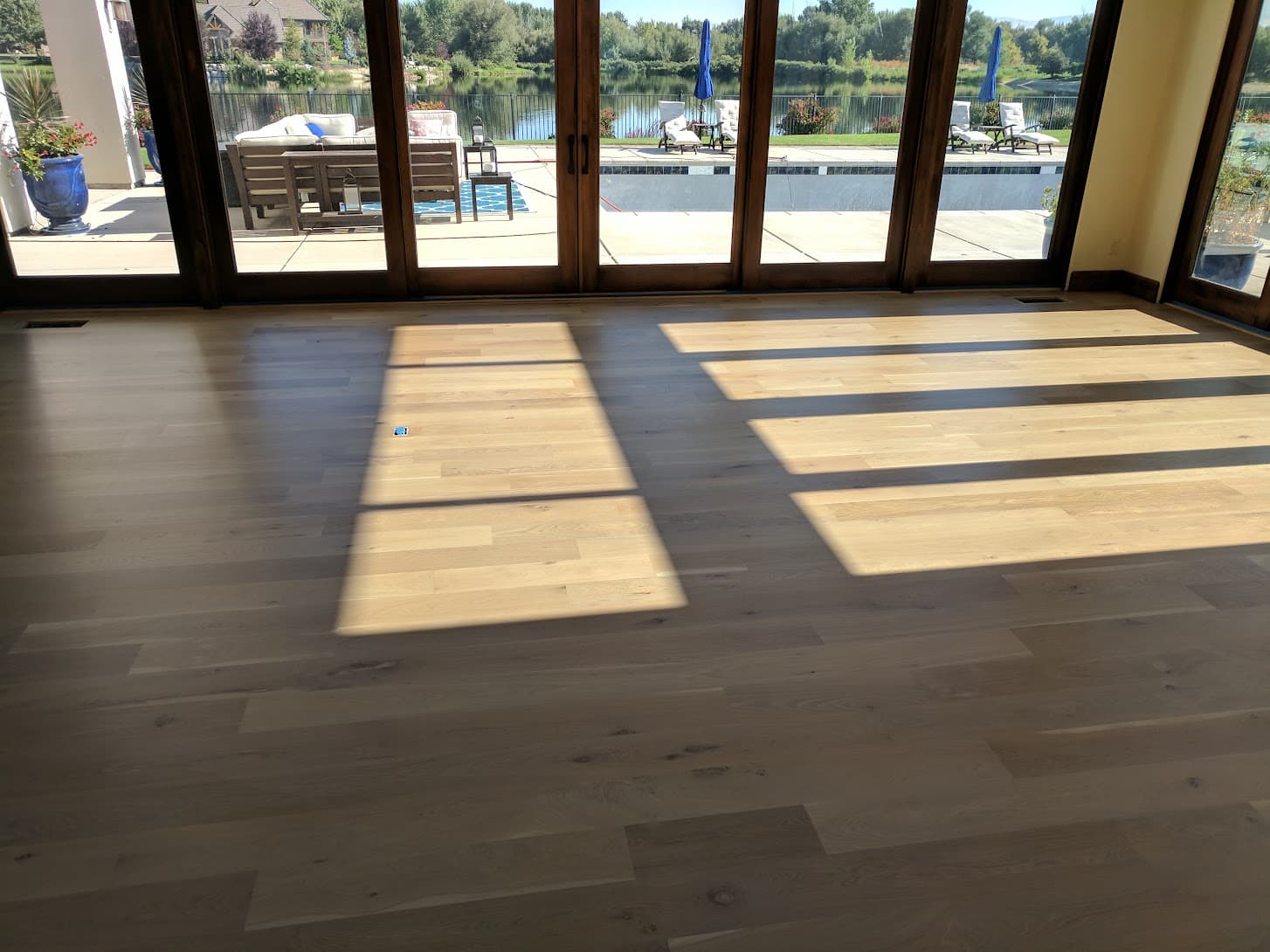At Rustic Wood Floor Supply, we encounter customers referred by their installer or other stores who often come in with incorrect information about the difference between engineered and solid hardwood flooring. Unfortunately, this misinformation also spreads to designers, architects, and other groups.
Our experienced associates understand what information should and should not be shared, and we take pride in providing truthful information, even if it goes against what other companies share. To help with a better understanding of the difference between engineered and solid hardwood flooring, below is a concise list of bullet points.
What is Solid Hardwood Flooring?
Solid hardwood flooring is made from one piece of wood, cut from one tree. Typically, solid hardwood flooring is 3/4″ thick, although it also comes in 33/32″ and 1/2″ thicknesses. However, 99% of the time, solid hardwood flooring is 3/4″ thick.
What is Engineered Hardwood Flooring?
Engineered hardwood flooring is made in a factory and has many different layers. It combines layers of wood with glue to create options typically available in 3/8″, 1/2″, 9/16″, 5/8″, and 3/4″ thicknesses. The top layer of engineered hardwood flooring is called the wear layer, which can range from 1mm to 6mm in thickness.
Solid hardwood flooring is a popular choice for homeowners due to its natural beauty and durability. However, like any flooring material, it can also have some typical problems that may arise. Here are a few examples:
- Moisture damage: Solid hardwood flooring is vulnerable to moisture damage, which can cause warping, cupping, or buckling. This can occur from spills, leaks, or even high levels of humidity in the home.
- Scratches and dents: Solid hardwood flooring can be susceptible to scratches and dents from heavy furniture, pets, or dropped objects. These can be more noticeable than in other flooring types due to the natural appearance of the wood.
While engineered hardwood flooring offers several advantages, such as greater stability and resistance to moisture, it also has some typical problems that may arise. Here are a few examples:
- Scratches: The top layer of engineered hardwood flooring is usually made of a thin veneer of real wood, which can be easily scratched or dented by heavy furniture or pets.
- Delamination: If the adhesive used to bind the layers of the engineered hardwood flooring fails, the planks can begin to separate or delaminate.
- Moisture Damage: Although engineered hardwood flooring is more resistant to moisture than solid hardwood flooring, excessive moisture exposure can still cause warping, cupping, or buckling.
- Limited Sanding: The thin veneer layer of engineered hardwood flooring means that there is a limited amount of wood that can be sanded down over time. This can make it challenging to refinish the floor if it becomes worn or damaged.
- Poor Quality: Not all engineered hardwood flooring is created equal. Some manufacturers use low-quality materials or production methods that can lead to issues such as warping, splitting, or shrinking.
- Checking – Engineered hardwood checking refers to the appearance of small cracks or splits that can develop in the top layer of the flooring. These cracks can occur along the grain of the wood and can vary in size and frequency.
It’s important to note that these problems are not universal and can be avoided with proper installation, maintenance, and care. Choosing high-quality engineered hardwood flooring and having it installed by a professional can also help to minimize the likelihood of these issues.
Solid hardwood has a smaller footprint in the gas, electricity, and consumables used in production.
Solid hardwood has the most usable wear layer of an engineered wood. Even full 6mm wear layers still have a little less meat on the vanner compared to solid hardwood. Solid hardwood can last centuries. The glue in engineered hardwood is only rated for 25 years.
Typically engineered hardwood is slightly more stable. However, with a bad climate, all wood will move or shrink. While more stable, engineered hardwood has wood going in different directions per layer which can cause other issues if there is a climate change in the home.
What do you Recommend for Flooring in a Home?
To start with, it’s important to understand the strengths and weaknesses of each flooring option. With engineered hardwood flooring, there are varying levels of quality available, from low-end products to high-end options. Be wary of cheaper prices, as they often indicate lower quality flooring. In fact, higher quality engineered flooring can cost more than solid hardwood flooring. When requesting quotes from a store, keep in mind that labor costs may be lower for a good quality engineered product, but the material costs will be more expensive. Conversely, solid hardwood flooring has lower material costs but higher labor costs.
To help you decide which option is best for you, here are some simple guidelines to consider:
- Price: If you’re on a tight budget, consider an engineered hardwood floor, but be prepared to sacrifice quality. For a higher quality product, solid hardwood may be a better investment in the long run.
- Color options: Both engineered and solid hardwood flooring can be stained or color matched, so color options are not a deciding factor.
- Texture: The texture of engineered and solid hardwood flooring is similar, so this factor should not be a deciding factor.
- Durability: Solid hardwood flooring typically lasts longer than engineered hardwood flooring, so if durability is a priority, solid hardwood may be the better choice.
- Width: If you’re looking for super wide plank flooring, engineered hardwood may be easier to source.
- Green footprint: Solid hardwood flooring is generally considered more eco-friendly than engineered hardwood flooring.
By considering these factors, you can make an informed decision about which type of hardwood flooring is right for your needs and budget.
Are You Being Dramatic About Issues with Engineered Flooring?
Yes, we have heard from a number of contractors, homeowners, and builders about their negative experiences with engineered hardwood flooring. Many of these failures can be attributed to the quality and price of the flooring, with lower-quality options being more prone to issues. Even higher-end engineered hardwood flooring may experience problems in the long-term due to issues such as delamination caused by humidity and glue.
Solid hardwood flooring, on the other hand, may experience issues if the indoor temperature is set too high in the winter without proper moisture control. This can cause wider planks to shrink, but this issue can be avoided and fixed, unlike delamination in engineered hardwood flooring.




